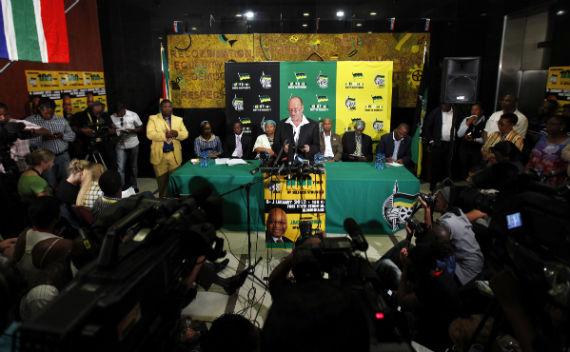Malema Suspended From ANC
More on:

The chairman of the African National Congress (ANC) disciplinary committee, Derek Hanekom, yesterday announced that ANC Youth League president Julius Malema was suspended from the party for five years for “damaging the standing of the ANC and South Africa’s international reputation,” to the relief of domestic and international business communities and, likely, Jacob Zuma who wants a second presidential term.
In South Africa’s racially charged politics, it is easy to see the ANC as a black political party. Julius Malema, claiming to speak on behalf of township dwellers and the very poor, often plays the race card. But Hanekom is a reminder that the ANC is more complicated. He is a white Afrikaner from the Western Cape, who testified in defense of Malema during the latter’s trail over singing, “Shoot the Boer.” Hanekom has deep anti-apartheid credentials. He and his wife Trish were arrested multiple times for anti-apartheid activities. He served a prison sentence from 1983-1986 and was in exile in Zimbabwe from 1988 -1990.
At present he serves as deputy minister of science and technology, having been appointed by then-president Thabo Mbeki in 2004. Presidents Motlanthe and Zuma have renewed that appointment. In Nelson Mandela’s government he was minister of land affairs. It is said that Mandela appointed him because, as an Afrikaner, he would be able to negotiate with white landowners.
While the heads of the party since the end of apartheid – Nelson Mandela, Thabo Mbeki, and Jacob Zuma-- have all been black, its leadership has included whites such as Hanekom, “Indians” (persons of South Asia descent) such as former speaker Frene Ginwala, and “coloureds,” such as the economic czar, Trevor Manuel.
More on:
 Online Store
Online Store
